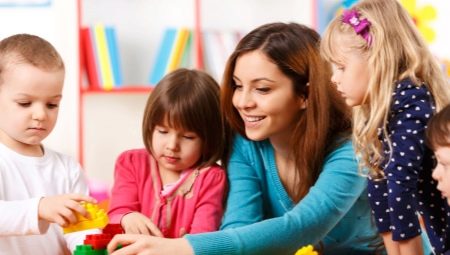What a teacher does at school - more or less everyone understands. But the description of the activities of a preschool teacher is much less familiar to most people.
Meanwhile, for the representatives of this profession, special knowledge is necessary, and their training takes place no less carefully than that of teachers at a school or university.
Features
The main feature of the work of the teacher of preschool education, which is unusual for teachers of other professions, is that it lays the foundation for the successful development of the child. To make a mistake at this moment is very easy and simple. Correcting it later will be tremendously difficult, and sometimes completely impossible. A number of psychological studies have established that the main character traits in children develop between 4 and 6 years. It is then determined how a person will interact with other people.
But with all the importance of education, one should not forget about the educational component of such activities. Knowledge and skills should also be inculcated at this age. Interaction with each student should be built individually - which will not happen later even in the best schools and especially universities. The teacher of preschool education should not struggle with the fantasies and game inclinations of children, as it will be later, but use them, and at the same time help to overcome them by bringing them to a logically completed form. Summarizing the above, you need to focus on:
- responsibility;
- increased complexity of work;
- the need to act quickly and smoothly;
- Strictly considering the characteristics of students.
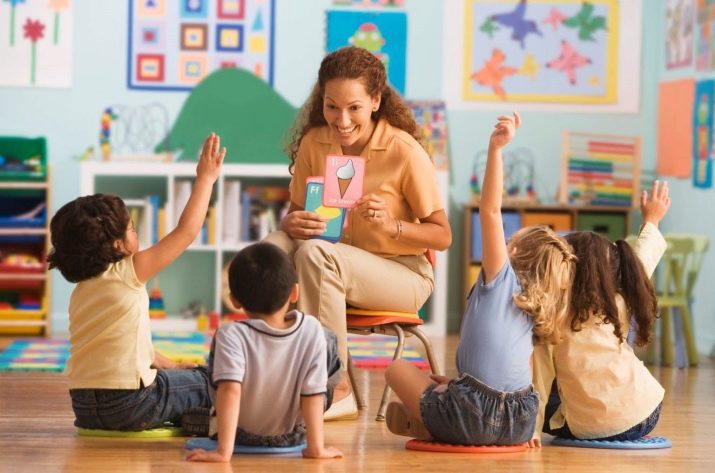
Responsibilities
The most important component of the activity of a preschool teacher is the constant monitoring of pupils. Care must be taken that they do not end up in a dangerous situation. It can occur anywhere - in the bedroom and the corridor, in the dining room and in the classroom, but the risk is especially great for a walk and when playing outdoors. Given the special susceptibility of the body of babies to infections, teachers working with preschool children are required to undergo a physical examination twice a year. At the same time, they themselves must be able to assess the health status of the pupils, and at the first ill-being - take the necessary measures.
Teachers of preschool education together with the nursing staff of kindergartens and other health workers take care of strengthening the health of the foster children and instill in them hygiene skills. Particular attention must be paid to weakened children, to those who have only recently recovered from an injury or illness. In some cases, it is necessary not only to develop babies, but also to engage in pedagogical, psychological correction.
In addition, the kindergarten conducts its work in an orderly, systematic manner. All the activities of educators should be built on a clear-cut plan. This is expressed, of course, also in the strict implementation of the class schedule, the mode of the trained groups.
But it is impossible to reduce all activity only to the fulfillment of prescriptions. A good teacher of a preschool educational institution constantly monitors the interests of children and evaluates their abilities. This should be addressed both during the adaptation of those who have just joined the study group, and in its daily management, and, of course, in the preparation of supporting documents for graduates of the kindergarten.
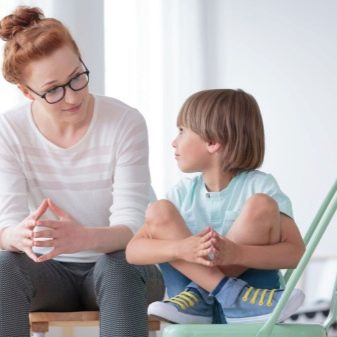

Another teacher's responsibilities include:
- leisure activities;
- holding holidays with the participation of children;
- replacement of other teachers during their absence;
- drawing up the necessary documentation;
- fulfillment of feasible instructions and instructions of managers, senior educators, medical workers;
- participation in educational councils;
- careful handling of the property of the organization;
- maintaining cleanliness and order in the group, and if possible throughout the territory.
Knowledge and skills
The general knowledge category for any kindergarten teacher includes the labor code and laws governing educational activities. It is necessary to study the acts regulating the rights of children. The pedagogical experience of the teacher can be different (and must be taken into account when working). But even beginners should:
- know how to control the pupils;
- take into account their age and physiological characteristics;
- strictly follow the principles of educational ethics;
- be able to understand the causes of conflicts and eliminate them;
- own relevant pedagogical approaches;
- own the main ways of communication with other teachers, their foster children, their parents and other people;
- to be able to fill the free time of those brought up;
- monitor fire and sanitary safety;
- Know the principles of internal organization.
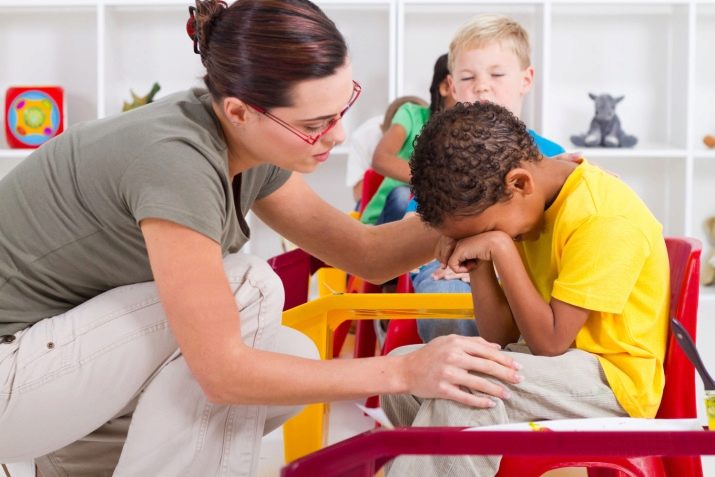
Training
Before choosing an educational program, you need to clearly determine what the future teacher actually plans to do. Direct work in a children's group is very different from preparing curricula and managing a kindergarten as a whole. Teaching standards for regular and older caregivers are also different. Part of kindergartens will be happy to hire graduates of colleges and technical schools. Indeed, in these educational institutions for 3-3.5 years they master a detailed program with a practical bias.
There are specialized secondary schools with the necessary program in at least any large regional city. But it makes sense for school graduates to unlearn 4 or 5 years in a higher educational institution. Any department of education always insists that kindergartens accept as many graduates as possible. In the learning process, they will master in depth precisely the methods of working with preschoolers.It makes sense to look for appropriate training programs at pedagogical institutes and universities. Somewhat easier for those who already have a pedagogical or related specialty - they can always use the retraining mode, which takes from 3 months to 1 year.
Special education in this format is available to everyone who has a university diploma (even in a completely different specialization). There will be no exams, you just have to pay for the training course. Important: people far from pedagogy will have to learn at least 1000 hours. Their education document should state that the graduates are qualified as educators. The necessary retraining is offered by pedagogical universities throughout Russia.
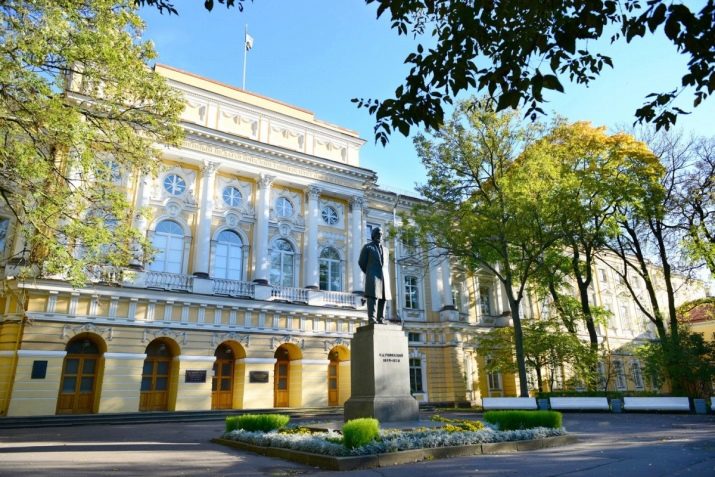
Career
Kindergarten employees have career prospects. but in material terms, this is not accompanied by corresponding changes. Many, having gone from a regular educator to a senior educator and then to a manager, go to other areas. Someone goes to the department of education, someone prefers to pursue a career in a private kindergarten.
True, then you will have to master alternative teaching methods; because some people are trying to open their own kindergartens.
